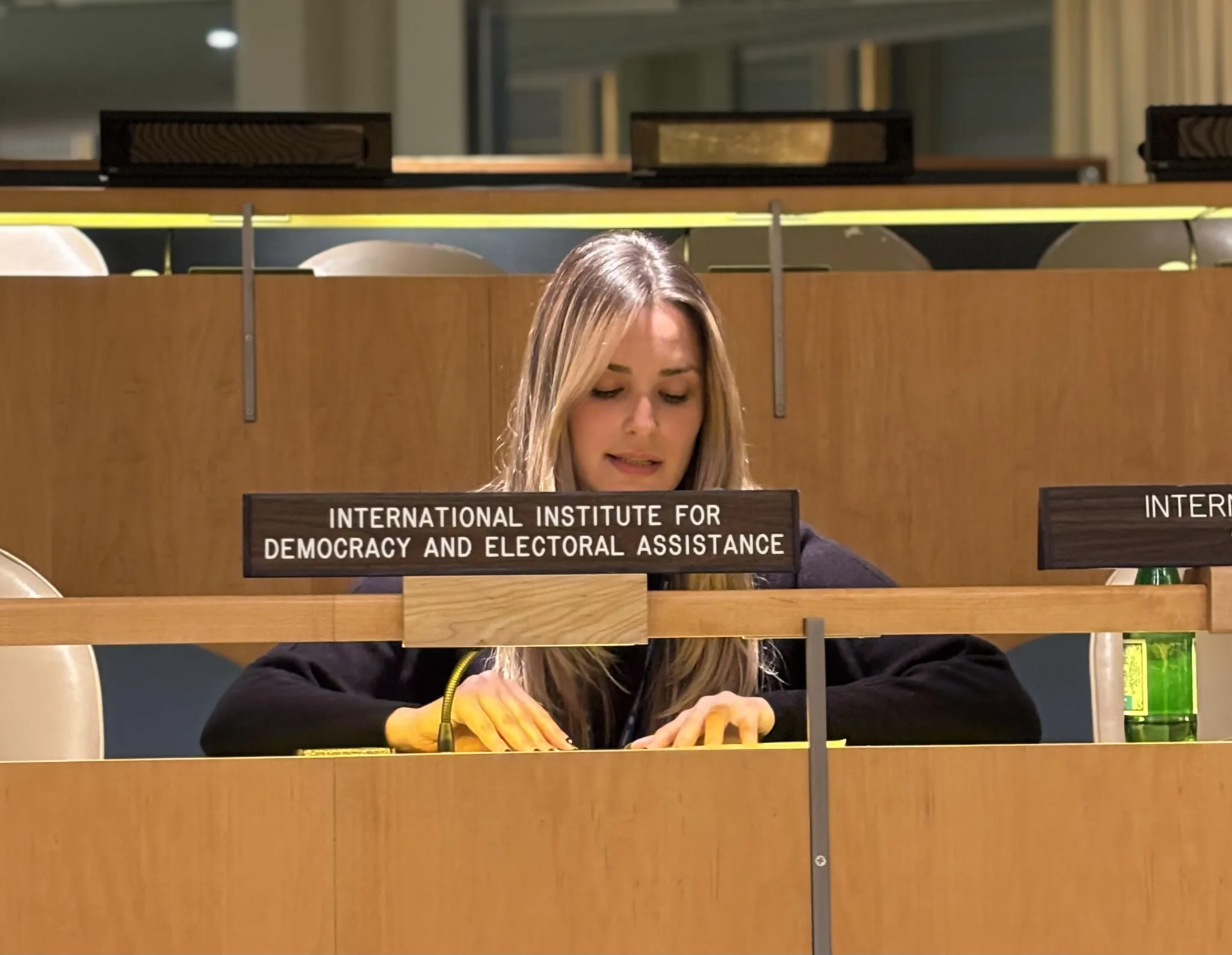High-level meeting to mark the 25th anniversary of the International Day for the Elimination of Violence Against Women

“High-level meeting to mark the 25th anniversary of the International Day for the Elimination of Violence Against Women”
Monday, 25 November 2024
General Assembly Hall, United Nations, New York
Statement by International IDEA
Excellencies,
The elimination of violence against women is a prerequisite for achieving gender equality, which in turn is essential for fostering peace and sustainable development[1]. As highlighted in UN Resolution 48/104, women are entitled to the equal enjoyment and protection of all human rights and fundamental freedoms in the political, economic, social, cultural, civil, or any other field. The best political system to achieve this outcome is democracy.
According to International IDEA's Global State of Democracy Indices, levels of gender equality are higher in democracies than in non-democratic regimes. Democracies provide more equal access to political power; produce more inclusive, participatory, and representative decision-making; and develop more effective, accountable, and transparent institutions. All these elements are critical for the empowerment of women and girls. Data from International IDEA’s Global State of Democracy reports have shown that only 3% of democracies perform very poorly on gender equality measures. For authoritarian regimes, the proportion is 50%.
Unfortunately, despite recent advances, gender inequalities remain deeply entrenched in many parts of the world, particularly in non-democratic contexts. Even when equal rights are guaranteed by law, women often face barriers in practice, including political violence, offline and online harassment, the disproportionate effects of conflict, and cultural norms that limit their ability to seek and hold elected positions of power.
In many political contexts, according to data from the Inter-Parliamentary Union (IPU), women suffer violence and harassment, both in person and online, as a method of political intimidation, particularly when they challenge traditional power structures or advocate for more inclusive policies[2]. Women in elected offices face even greater risks of violence from political rivals or extremist groups. Such violence, which is especially acute in conflict or post-conflict areas, not only targets women’s well-being but also seeks to silence their voices, restrict their political agency, and deter them from pursuing leadership roles. This reduces the diversity of political representation and undermines basic democratic principles.
Recent reports by International IDEA[3] highlight that addressing violence against women in politics requires comprehensive measures, including awareness and training for women’s empowerment, stronger legal protections for women who suffer aggression and harassment, better reporting mechanisms against abusive online behavior, and safe spaces for women in political environments, including political parties.
Excellencies,
The elimination of violence against women in politics is essential for the advancement of human rights, democracy, and gender equality. Only by addressing and eradicating this violence can we create a political landscape where all voices, regardless of gender, are heard, valued, and empowered.
I thank you.
